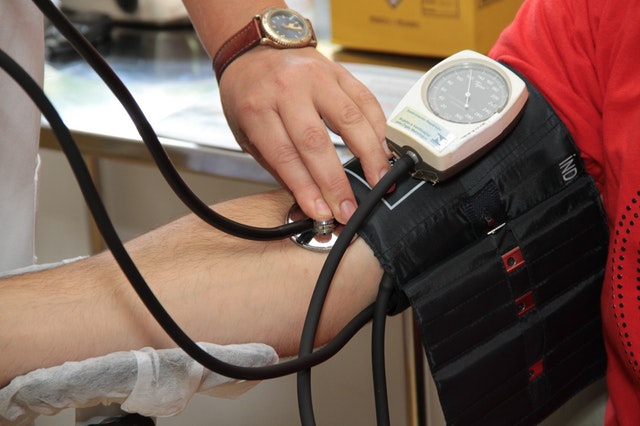5 Common Causes of High Blood Pressure You May Not Know About

High blood pressure, also known as the “silent killer,” is a medical condition that affects 75 million Americans. That’s nearly 1 in 3 adults! Despite the medical community’s warning of potential side effects, only 54% of those with high blood pressure have it under control.
High blood pressure got its nickname because many people do not realize they have it, as it has very few symptoms or warning signs. When left uncontrolled, this prevalent condition increases the risk of stroke and heart disease, two of the leading causes of death amongst Americans.
Fortunately, there are a number of things you can do to keep your BP in check. No smoking, decreased alcohol consumption, healthier eating, and increased physical activity are often effective ways to lower your blood pressure. The following are causes of high blood pressure that many people are unaware of.
Sleep Apnea
According to the Journal of Hypertension, untreated obstructive sleep apnea (OSA) is a leading cause of high blood pressure. According to a recent study conducted by the Sleep Disorders Center at The Ohio State University Wexner Medical Center, patients with both high BP and OSA realized a significant reduction in their BP when consistently treated for their sleep apnea with a continuous positive airway pressure (CPAP) machine. The study went on to conclude that untreated sleep apnea could be why many patients see little result, despite being on multiple medications. If you experience such symptoms as daytime drowsiness, loud snoring, abrupt nighttime waking, and dry mouth in the morning, have your physician monitor your blood pressure carefully.
Heavy Metal Toxicity
There are numerous studies that suggest that heavy metal poisoning can result in high blood pressure. Mercury, which is often found in fish, drinking water, and older teeth fillings, and lead paint, often interfere with the cardiovascular system.
Vitamin D Deficiency
According to a 2014 meta-analysis published in The Lancet Diabetes & Endocrinology, just a 10% increase in vitamin D can reduce your odds of hypertension by 8.1%. If you suspect you might be vitamin D deficient, discuss this matter further with your physician. Vitamin D levels can be measured with a simple blood test.
Medications
Believe it or not, there are some medications that actually cause an increase in blood pressure. While it is best to consult with your physician and/or pharmacist, the following are a few medications known to increase blood pressure.
- Corticosteroids, such as Prednisone
- Antidepressants, particularly venlafaxine (Effexor) and MAO inhibitors (Nardil, Parnate)
- Non-steroidal anti-inflammatory medications such as aspirin and ibuprofen
- Benzodiazepine anti-anxiety drugs, such as Valium, Ativan, and Xanax
- Etidronate (Didronel), used to treat osteoporosis
- Nasal decongestants, such as phenylpropanolamine
- Migraine medications, such as Imitrex
- Asthma medications/bronchodilators such as ephedrine and epinephrine
- High estrogen levels, which can cause edema, have also been linked to high blood pressure
Thyroid Issues
Recent studies have linked hypothyroidism (an under active thyroid) and high blood pressure, often resulting a higher BMI and triglyceride levels. If you have experienced such symptoms as depression, increase cold sensitivity, changes in menstrual cycle, sudden weight gain, and/or trouble losing weight, be sure to address these issues with your doctor. Hypothyroidism is more common in females and can be diagnosed with a simple blood test.
Understanding and treating high blood pressure is not often a difficult task. Recovering from its untreated effects can be a different story. Have yourself checked by your doctor and work to make healthy changes, whenever possible. Don’t let the “silent killer” sneak up on you.






Leave a Reply
Want to join the discussion?Feel free to contribute!